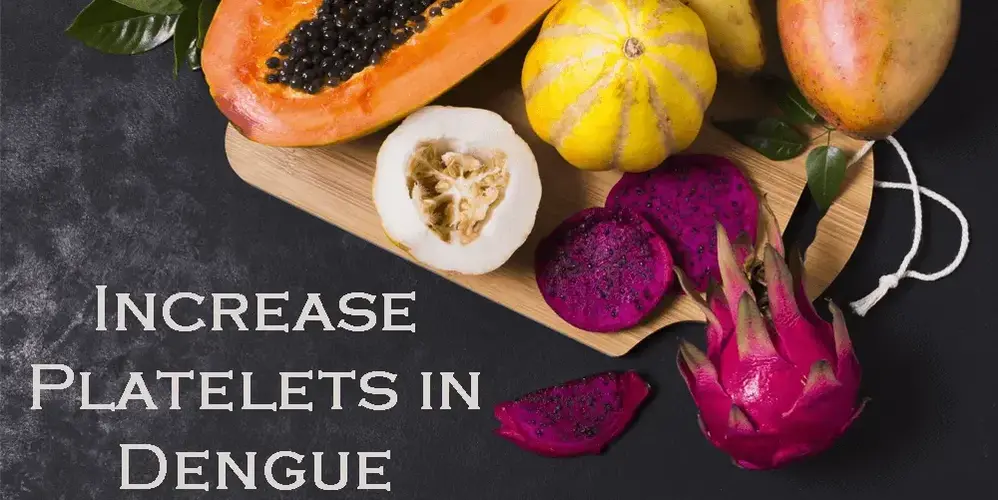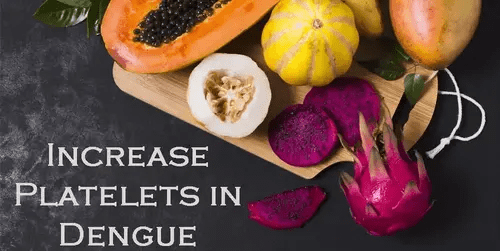
Dengue fever is a debilitating viral infection transmitted by specific types of mosquitoes. While many people recover from dengue with the right treatment, one of its most concerning effects is a severe platelet drop (thrombocytopenia). Platelets are tiny blood cells that play a crucial role in forming clots. When your platelet count drops too low, you may have an increased risk of bleeding, both internally and externally, potentially leading to complications.
Why Do Platelets Drop in Dengue?
The dengue virus attacks your platelet levels on multiple fronts. The primary way it does this is by infiltrating your bone marrow, the spongy tissue inside your bones where blood cells, including platelets, are produced. The virus infection disrupts the production of new platelets, leading to a decline in your overall platelet count.
Furthermore, the dengue virus triggers an overactive immune response. As your body tries to fight the infection, this confused immune system can start mistakenly destroying even healthy platelets circulating in your bloodstream. This combination of suppressed production and increased destruction is why people with dengue often experience a significant drop in their platelet levels.
Natural Ways to Increase Platelets
1. Hydration is Key
Dehydration is a common issue during dengue fever, and it can further complicate your platelet count. Prioritize staying hydrated by drinking plenty of fluids throughout the day. Focus on water, coconut water, fresh fruit juices (avoiding those high in sugar), vegetable juices, clear broths, and electrolyte-rich drinks. Proper hydration supports optimal blood volume, aiding in the transport of nutrients and waste products, essential for all of your body’s functions, including platelet production.
2. Papaya Leaf Extract
Studies suggest that papaya leaf extract may have potential benefits in increasing platelet count. The exact mechanism is still being researched, but it’s important to emphasize that you MUST consult your doctor before considering papaya leaf extract. It’s crucial to determine if it’s appropriate in your case, the correct dosage, and to monitor for any potential side effects or interactions with other medications you may be taking.
3. Foods Rich in Vitamin K
Vitamin K is an essential nutrient directly involved in the blood clotting process. Consuming a diet rich in vitamin K can help your body form clots properly and minimize the risk of bleeding. Focus on dark leafy green vegetables such as spinach, kale, collard greens, broccoli, and Brussels sprouts. These powerhouses provide your body with the vitamin K it needs to function optimally.
4. Vitamin C Boost
Vitamin C is a potent antioxidant that not only strengthens your immune system but may also play a role in protecting platelets from damage. Load up on a variety of vitamin C-rich fruits and vegetables, including citrus fruits (oranges, grapefruit, lemons, limes), kiwis, strawberries, bell peppers, tomatoes, and berries. Doing so will bolster your body’s defenses and potentially contribute to increase platelets.
5. Folate-Packed Diet
Folate (vitamin B9) plays a crucial role in cell division, a process essential for producing new blood cells, including platelets. Prioritize excellent dietary sources of folate, such as spinach, lentils, black-eyed peas, fortified cereals, and beans. A folate-rich diet provides your body with the building blocks it needs to support increased platelet production.
6. Iron-Rich Foods
Iron is a vital component of hemoglobin, the protein responsible for carrying oxygen in your red blood cells. If you have iron deficiency, it can worsen the problem of low platelet count. Incorporating iron-rich foods into your diet is essential. Focus on lean red meats, poultry, fish, beans, lentils, tofu, dark leafy greens, and fortified cereals to ensure you’re getting enough of this important mineral.
7. Rest and Recovery
Give your body the time and resources it needs to heal. Adequate sleep and rest are paramount during dengue recovery, as they allow your body to focus its energy on fighting the infection and replenishing platelets. Minimize strenuous activities, listen to your body’s signals, and allow yourself ample time to rest and recover.
Please note: While these natural methods can support your body’s efforts to increase platelets, they should never replace the medical treatment prescribed by your doctor for managing dengue fever.





